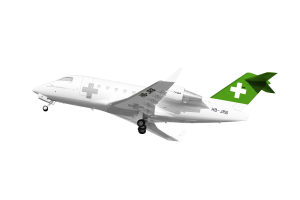Jet Lag and Insomnia
Welcome to Qoctor’s online doctor service which can provide assessment for jet lag and sleep disturbance. Answer some online questions, then book a video consultation with an AHPRA-registered doctor. The consultation fee is $29.99.
If a prescription is advised, it can be sent to your phone as an eScript, or electronically to your local pharmacy, OR you can get medication delivered by an Australian partner pharmacy- in this case, the cost of medication gets added at the checkout. Please note, all treatment and advice is issued subject to your consultation and doctor’s assessment.
About Jet Lag
- Jet lag occurs when you cross time-zones during long-haul travel
- It happens because your body’s natural rhythm of sleep and waking is disturbed.
- Not everybody gets jet lag.
- Symptoms of jet lag include:wakefulness at night, daytime tiredness, impaired concentration, irritability and mood disturbance.

FAQs about Jet Lag
Jet lag refers to symptoms arising from crossing several time zones, particularly following rapid travel.
Common symptoms of jet lag include:
- Feeling tired or exhausted
- Difficulty staying awake
- Sleeping excessively
- Disturbed sleep
- Poor concentration
- Reduced coordination
- Irritability
- Changes in appetite
- Altered bowel habit (constipation or loose stools)- may be related to change in meal times or reduced fluid intake on flights
Common symptoms of jet lag include:
- Feeling tired or exhausted
- Difficulty staying awake
- Sleeping excessively
- Disturbed sleep
- Poor concentration
- Reduced coordination
- Irritability
- Changes in appetite
- Altered bowel habit (constipation or loose stools)- may be related to change in meal times or reduced fluid intake on flights
The circadian rhythm is the normal cycle of being awake during the day and sleeping at night and generally dictated by the cycle of daylight and darkness. When we travel, the differences in time at our destination cause a disturbance of our normal circadian rhythm.
Melatonin is produced naturally in the body- it is a hormone made by a part of the brain called the pineal gland. Basically, it is “nature’s sandman”- telling the brain and body that it’s time to go to sleep. Darkness triggers a natural release of Melatonin into the bloodstream, while daylight reduces Melatonin levels.
When we travel across different time zones, it may take a period of time for our Melatonin production to adjust and help correct our sleep cycle,
Travelling across multiple time zones and travelling east to west tends to increase the effects of jet lag.
Once your body eventually adapts to the time at your destination, the Jet Lag symptoms usually subside but this may take a few days.
There are some tips that may help reduce the effects of jet lag:
- Adapting your schedule to the new time zone is critical- e.g. not sleeping until it is reasonably close to your usual bedtime in the new time zone
- Adapting your sleep schedule prior to travel may help i.e. sleeping towards your destination time zone times
- Try not to oversleep- set alarms accordingly to prevent this
- Exposure to daytime in your destination can help to reset your internal body clock
- Limit your caffeine and alcohol intake during travel
- Staying well hydrated
- Medication- subject to your doctor’s advice
Health Library- Cause, symptoms and treatment of Jet Lag
Can you cure Jet Lag with exercise?
Can you cure Jet Lag with exercise? Does exercise help Jet Lag? A new study performed at the University of Arizona has shown that exercise influences the human body’s response to jet lag. A hormone called melatonin, produced by the pineal gland (in the brain), appears to play an important role in causing sleep. If you measure levels of melatonin, you find it goes up at night. Over a 5 day period, researchers at the University of Arizona made 99 volunteers follow differing exercise regimes and measured the changes in their melatonin levels. The exercise regimes involved getting on a treadmill for an hour a day at a set time. What conditions can be assessed by our doctors? So what were the findings? The researchers found that Volunteers who exercised at 7am or between 1pm and 4pm caused their melatonin levels [...]
How to treat jet lag
Jet lag- how to treat it What is Jet Lag? Jet lag occurs when you cross time-zones during long-haul travel It happens because your body’s natural rhythm of sleep and waking is disturbed. Not everybody gets jet lag. What are the symptoms of Jet Lag? Symptoms of jet lag include: Wakefulness at night. Daytime tiredness. Impaired concentration. Irritability/mood disturbance. Book a GP telehealth appointment Why does Jet lag happen? How the body regulates its 24-hour rhythm isn’t fully understood. There’s a tiny gland in the middle of your brain called the “Pineal gland”, which intermittently secretes a hormone called “Melatonin” in response to whether you’re in darkness or in the light. It takes a few days for your pineal gland to adjust to a new light/dark cycle. What makes Jet lag worse? The more time-zones you cross, [...]


